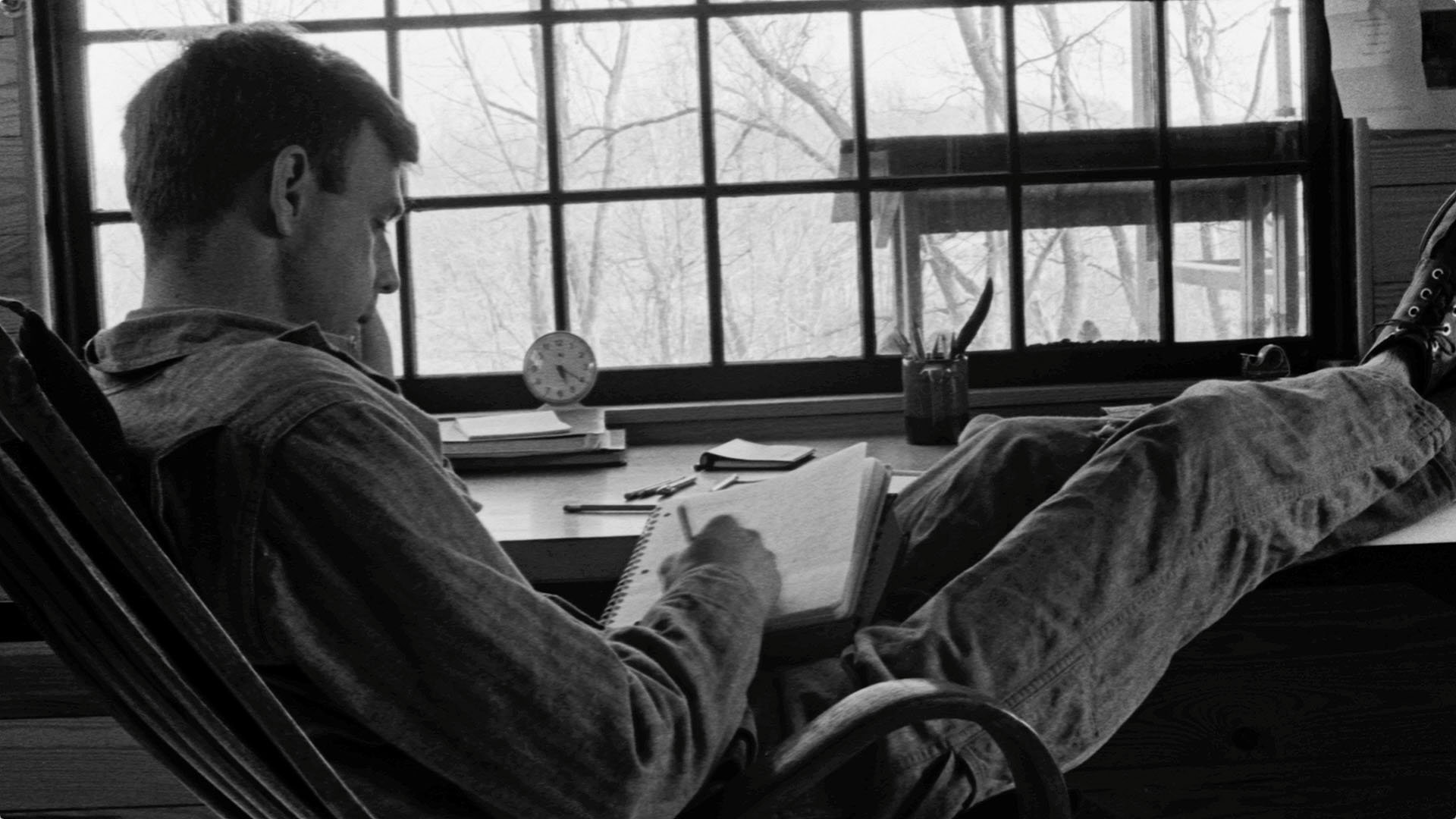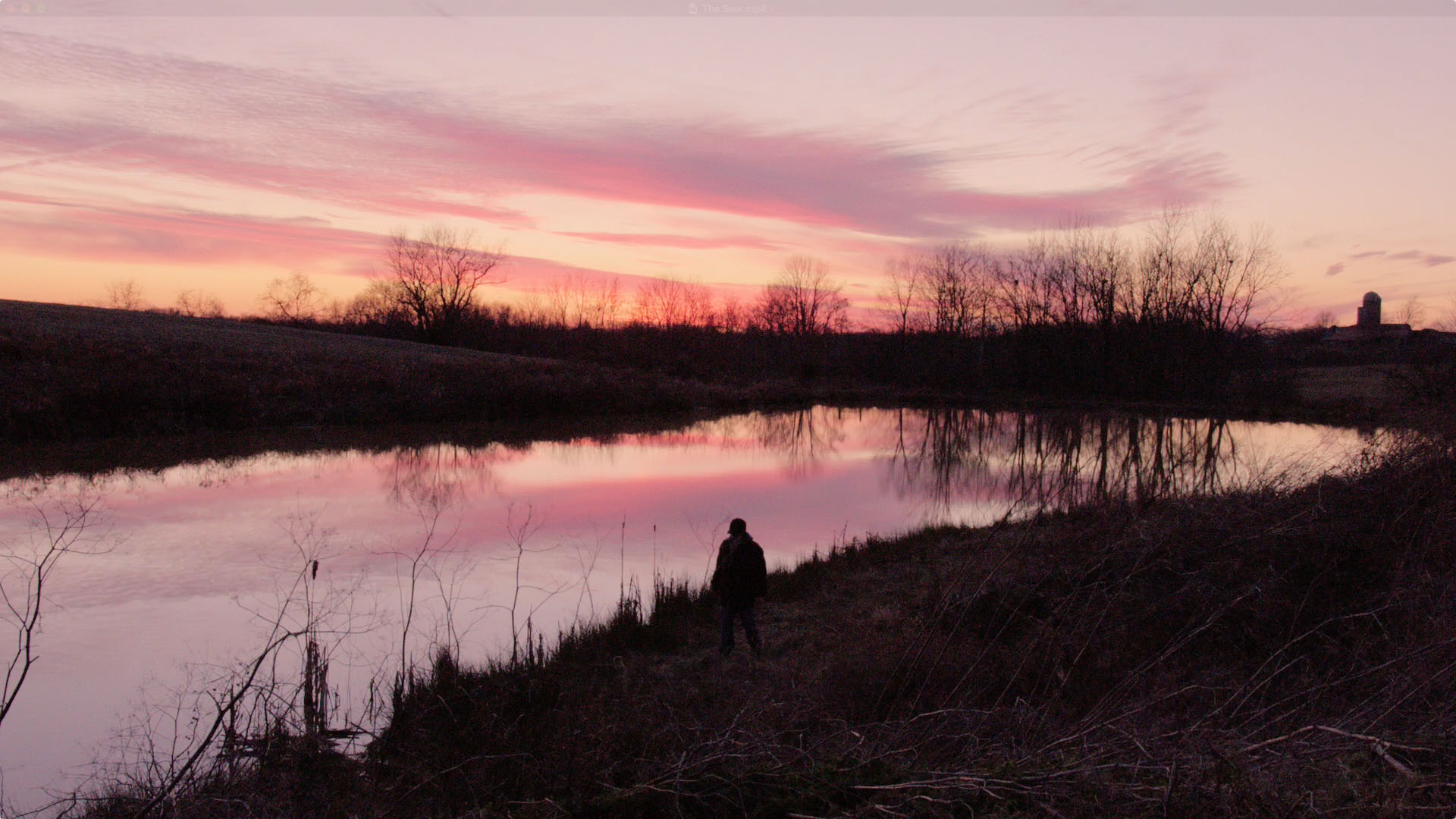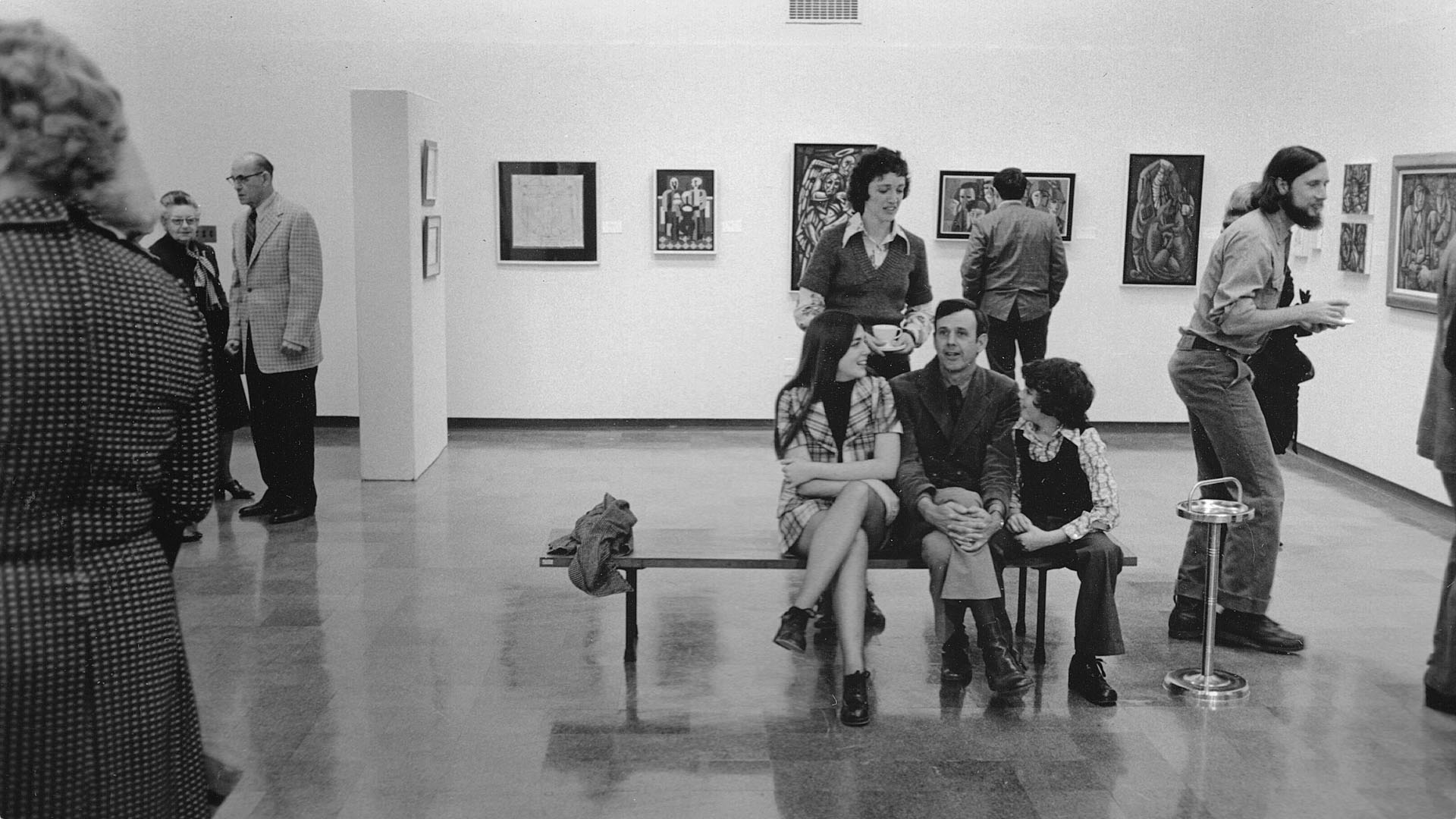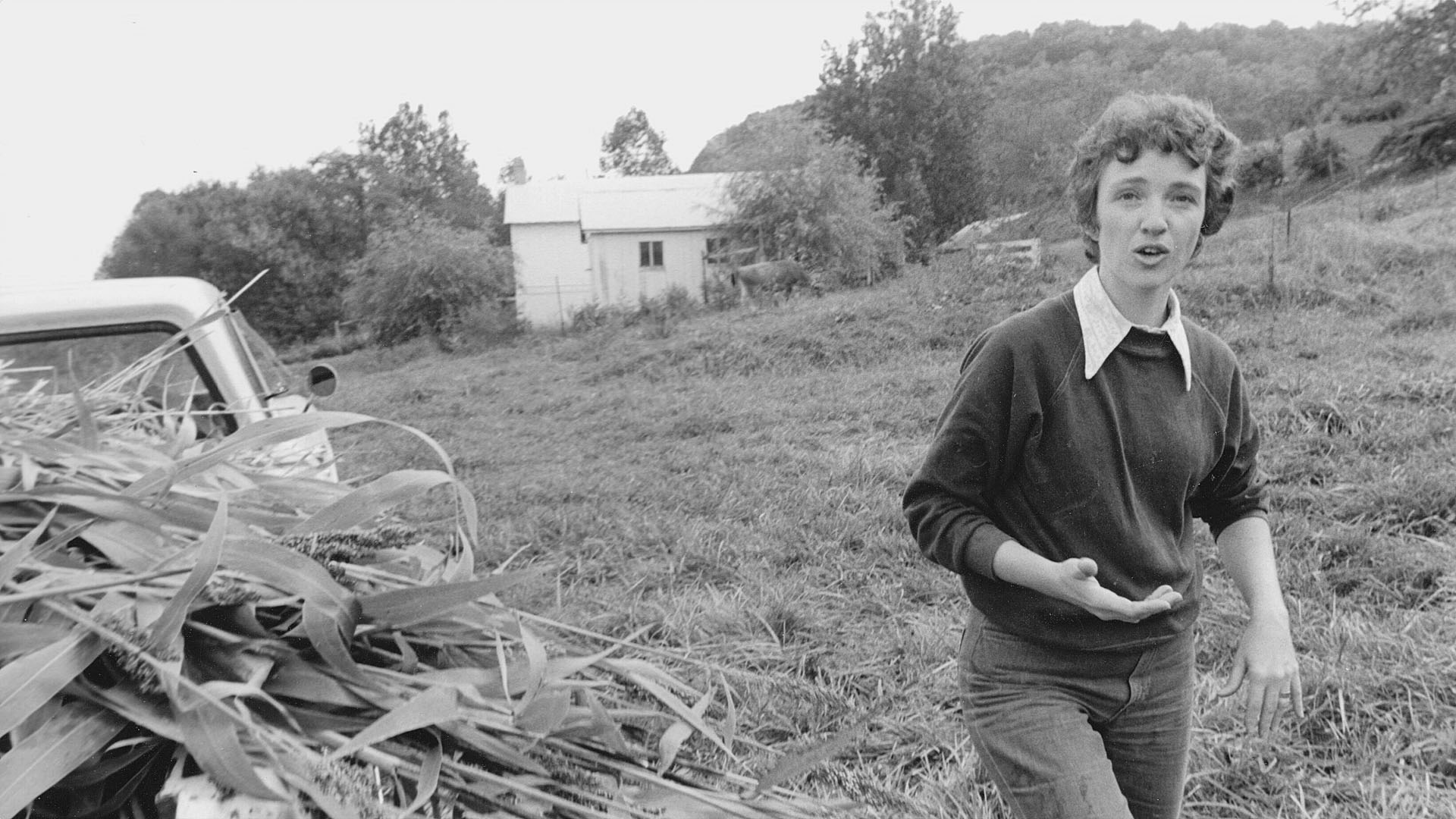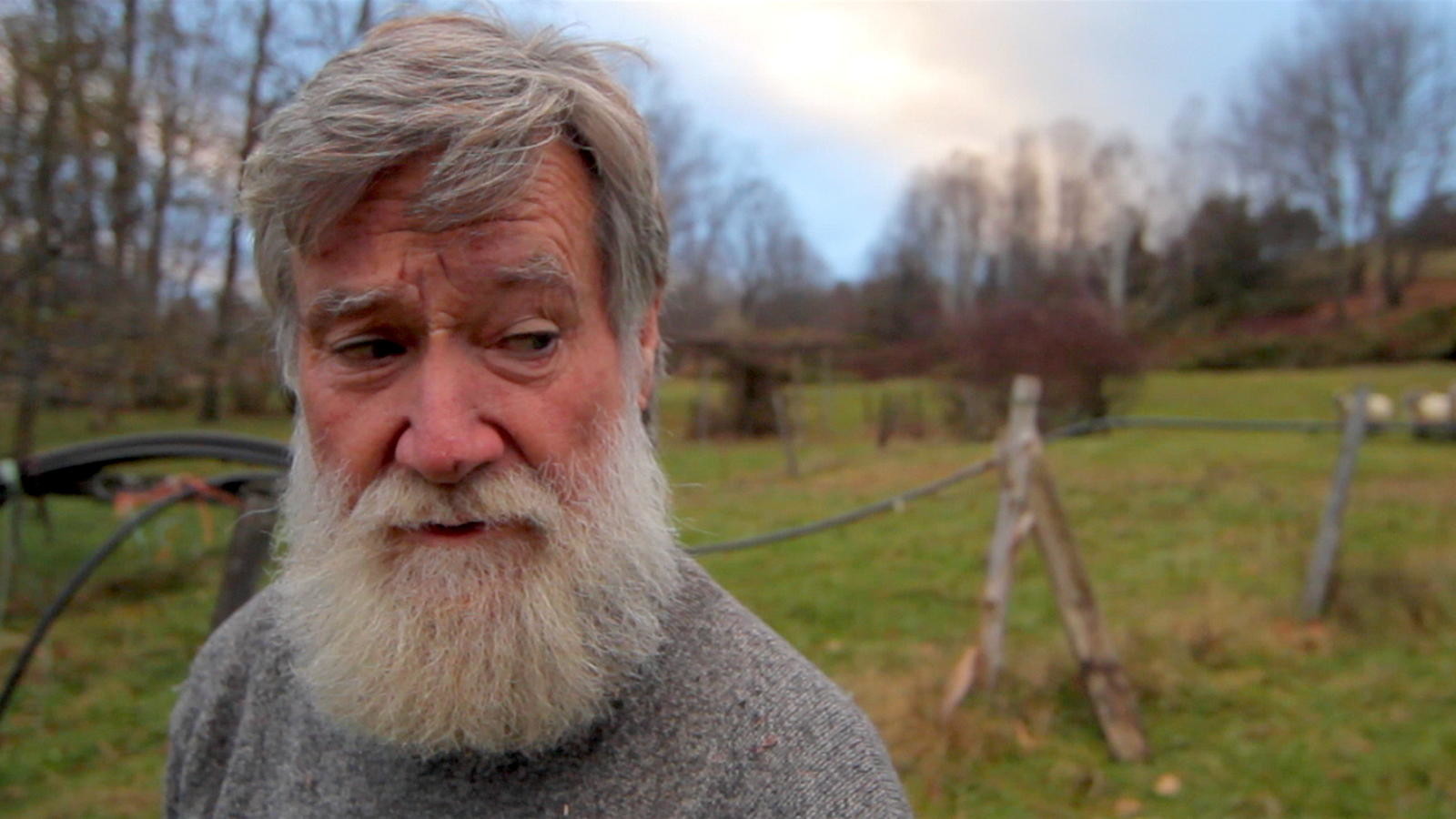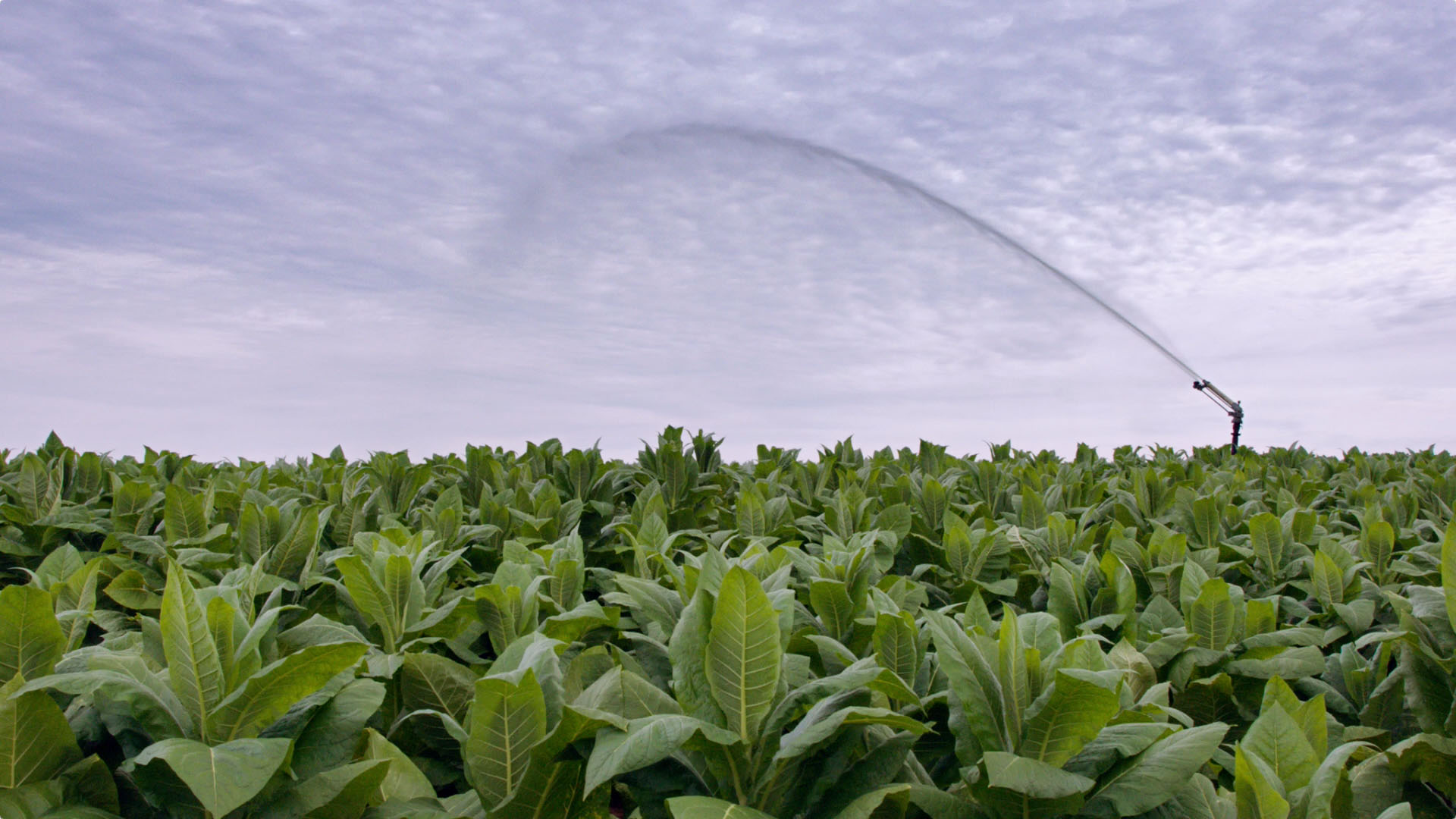
The Seer's subtitle is “A Portrait of Wendell Berry,” but that's not strictly accurate. Berry (who is 81) only appears on screen in old photographs and footage from the 1977 debate between him and former Secretary of Agriculture Earl Butz. He speaks to director Laura Dunn throughout the film, though, and his wife Tanya and daughter Mary appear as well, along with a number of farmers from Henry County, Kentucky, where the Berrys have made their home for a long time.
So we do learn about his life. But The Seer is only sort of biographical, and that seems like at least partly Berry's doing. Just last week, when asked in The New York Times's “By the Book” feature whom he'd want to write his life story, Berry replied, “A horrible thought. Nobody. As the only person who ever has lived my life, I know that most of it can never be documented, is beyond writing and beyond words.”
Luckily, The Seer—which premiered in competition at SXSW on March 12 and was directed, edited, and produced by Dunn—has a much grander goals than hagiography.
Berry is the rare writer and activist who can't be claimed by a single party: beloved by the right for his localist pro-family traditionalism and the left for his localist anti-corporate activism, Berry's writings—which make an unswerving case for a return to the farm, the family, faith, and all that is traditional and local—have taken on an unquestioned totemic quality among a lot of evangelicals.
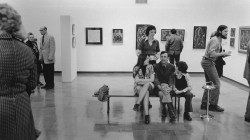
I'm uneasy about that. Years ago, Robert Joustra and I wrote in Books & Culture about Berry and the local food movement, and while I took the pro-Berry side in our exchange, Rob wrote that “to be truly virtuous in a globalized world means that our justice must be scalable,” and that line has stuck with me as a way of explaining what parts of Berry's writing I find problematic.
Berry sometimes seems to be writing polemics meant for a world that barely exists. Rooting in place and community and limits look very different for twenty-first century urbanites who are lawyers and IT professionals than it does for farmer-poets in Henry County. Without probing the edges of his arguments and trying to work them into the broader globalized context, those who read him limit the possibilities of what he's saying. He also needs interpreters.
I suspect Berry knows this, and that's why he writes poetry and fiction: his ideas take on a more universal quality when particularized to his characters in the fictional Port William, or to his Mad Farmer poems. He's most coherently viewed as a prophet. And he's been recognized as one through numerous awards, including the National Humanities Medal, awarded by President Obama in 2010. “I don't think that you can love those old values and love what has come to be American agriculture at the same time,” he says.
So it is fitting that Dunn's appropriately-titled film is actually a cinematic elegy for American farming and a plea for renewal. It both mourns and celebrates a way of life that is threatened. In a number of “chapters” with titles drawn from Berry's writings, farmers and family—who in the film are only identified on screen by their role: daughter, wife, farmer—speak of their love of the land and the creative and intuitive intelligence a farmer must develop to tend to his own. They talk frankly about the havoc wreaked on them by the rise of commercialized, large-scale farming, especially in the Philip Morris-subsidized farming of tobacco. Mexican farm workers talk about their jobs, and farmers talk about how labor has shifted. Some of them talk about being in debt so deep that they can't recover. (There's a smattering of salty language.) They talk about the impact the work of Berry and others have had to stem this tide; initiatives like community supported agriculture and farmer's markets, which are now ubiquitous in both the rural town where I grew up and my home in Brooklyn, owe a debt to Berry.
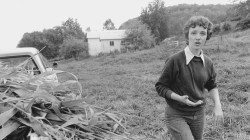
More subtle but just as important is the film's suggestion that farming, writing, art-making, and living gently in our places are all of a piece. Mary speaks about going on walks with her parents as a child and being taught to attend to her surroundings. “We were told to look and see,” she says. “What is that tree? What is this grass? That field was plowed incorrectly. Why is that? What should have been done? That man is a great farmer. See what he does? That is beautiful. Look and see that it's beautiful. And that's ugly—that's a scar. Look and see that.” This attentiveness isn't just important for farmers: it's for artists and writers, for scientists, for every sort of vocation. “Farmers deal with the kind of structural problems that novelists deal with,” Berry says. “What comes first? What do I have to do before I get to this?”
The movie practices its own preaching. In this case, it's attentive to the people it features, who talk ruefully about being considered “backward,” living out in the sticks. No: it's their choice, they say. Their lifestyle is hard work, but they value the independence and enjoy the creativity involved. Tanya Berry met Wendell in college, and had lived all over the country, but says she was surprised when she moved to the farm to discover that her assumption—that a person had to be “educated” to be smart—was completely backward.
The Seer manages the neat trick of both acting like a poem and educating. People who like Berry will find their understanding of his work deepened, and those who don't will be intrigued. Interestingly, the film boasts an all-star cast of producers: executive producers Robert Redford and Terrence Malick; co-producer Nick Offerman (aka Ron Swanson), who has frequently proclaimed that Berry is his favorite writer and whose hands apparently make a cameo in the film in a few shots where a three-legged stool is being crafted; Offerman's wife, actress Megan Mullally; and a somewhat odd host of friends and contributors, including Will Forte, Zach Galifianakis, Rob Delaney, and Andrew Bird. If that isn't indicative of the broad appeal and challenge of Berry's ideas, nothing is.
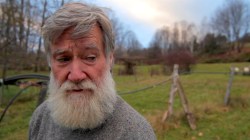
A useful counter-voice in another way to The Seer comes in the more innovative nonfiction film Peter and the Farm, which premiered at the True/False Film Festival a few weeks ago. Though similar in several ways, it’s their differences that are striking. Peter and the Farm follows a New Hampshire farmer, Peter Dunning, who like Berry has been farming for decades and participating in local agriculture, and is also an artist (a painter in Dunning's case). Both films are beautifully shot and document way of life that seems to be passing, but while The Seer is an “issue” film about big ideas and renewal, Peter and the Farm drills down to the individual life of its subject, who we slowly learn despite his apparently cheerful demeanor is suffering from depression and alcoholism, cantankerous in ways that make him lash out, cut off from his family and obviously lonely. It feels like a deeply honest take on rural life (helped along by some rather graphic farm-animal scenes of butchering and defecation). If Dunning is a seer, he's the one in Ecclesiastes, with a time for every season under heaven and a deep conviction that everything is vanity.
So Peter and the Farm actually forms a counterpart and even corrective to The Seer. It suggests that it is not merely a rural way of life, of being on the land, that leads to virtue and rootedness. Something springs from Berry's outlook—which, it's worth noting, is deeply marked by and inflected with his Christian faith—that transforms his situation. Presumably farming and reverence for place are part of that, but they can't be all of it.
And so my own uneasiness still stands. But I realized after The Seer that I'm less concerned with Berry's actual ideas, and more with the reflexive ways we praise them and quote them without grappling with their implications fully. Which of course is exactly what Berry is getting at. In a soundbite and Twitter culture, time for thinking and reflection and long-form reading is hampered. Our culture becomes impoverished when we don't attend to the world around us carefully and try to make sense of it critically.
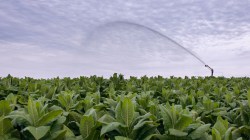
Berry resists the knee-jerk categorization that marks our dialogue both nationally and in church. When asked by the Times what one book he'd require the president to read, he said, “This reminds me that I am never going to be in a position to require a president to do anything. If we should have a president who needs to read one book, I would advise him or her to read none, but instead to find some smart people who disagree with her or him and listen to them carefully.”
In truth, my only problem with The Seer is that it doesn't actually call in those disagreeing voices. The ones that appear are set up in a context that makes them clearly misguided at best, and villainous at worst. But that's not what the film is after, and its admirable ability to make it about more than just Berry means we can focus on the larger issue: the impoverishment of rural cultures in America and resulting problems in culture more broadly.
And because culture requires cultivating—just like tobacco or organic tomatoes—it's exactly what Berry is interested in. “A culture is not a collection of relics or ornaments, but a practical necessity,” Berry says in the debate footage at the end of the film. “Its destruction invokes calamity. A healthy culture is a communal order of memory, insight, value and aspiration.”
Alissa Wilkinson is Christianity Today’s critic at large and an assistant professor of English and humanities at The King’s College in New York City. She is co-author, with Robert Joustra, of How to Survive the Apocalypse: Zombies, Cylons, Faith, and Politics at the End of the World (Eerdmans 2016). She tweets @alissamarie.

